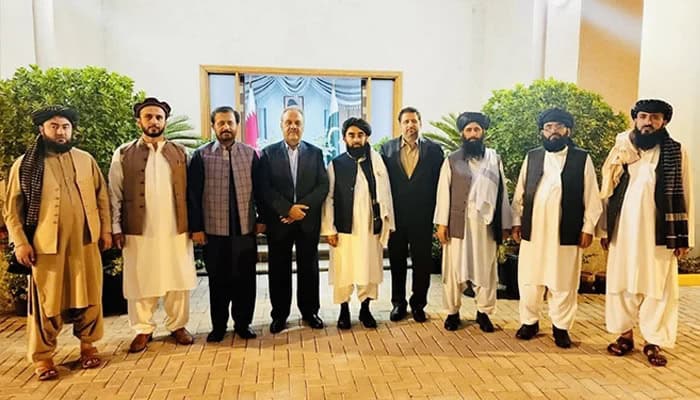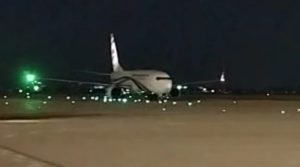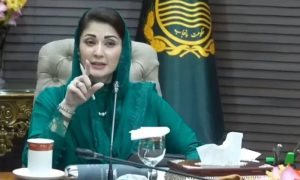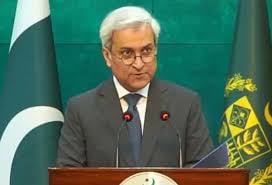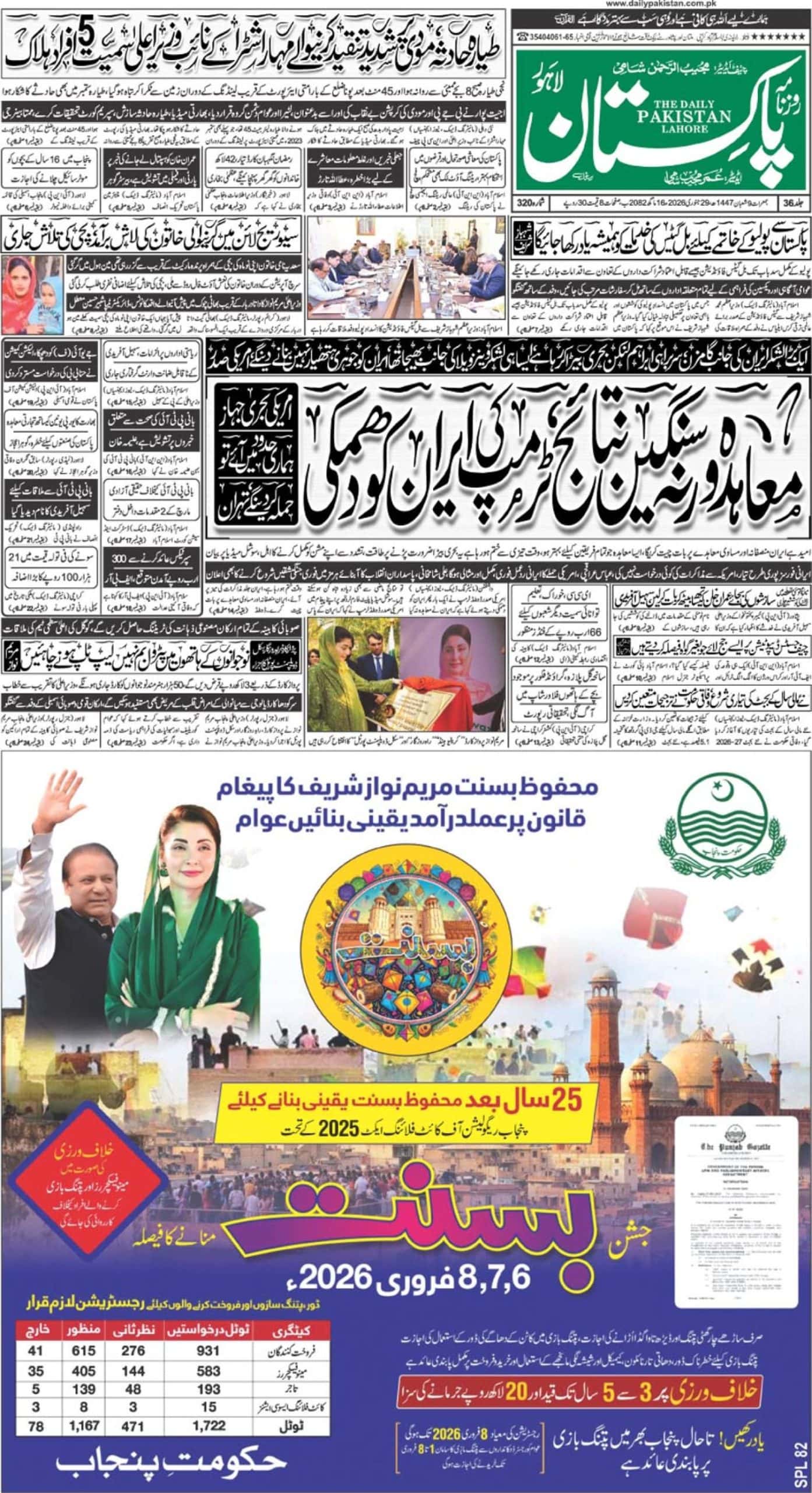In a recent diplomatic engagement following Islamabad’s announcement of an operation against Afghanistan-based terrorists, an Afghan Taliban delegation led by Afghan interim government’s spokesperson Zabihullah Mujahid met Pakistani diplomats on the sidelines of the Doha-III conference.
Pakistan and Afghanistan, traditionally close and brotherly South Asian neighbors, have seen their relationship strained due to frequent cross-border attacks, largely attributed to the banned Tehreek-e-Taliban Pakistan (TTP), which Pakistan’s security officials claim operates from Afghan soil.
The Afghan interim government’s representatives are in Doha to attend talks aimed at “increasing engagement with Afghanistan and developing a more coordinated response, including addressing economic issues and counter-narcotics efforts.”
They were scheduled to meet with UN officials and over 20 envoys, including the US special representative to Afghanistan, as the international community grapples with its approach to Kabul’s new rulers.
During their visit, Pakistani Ambassador to Qatar Muhammad Aejaz hosted a dinner for the Afghan Taliban delegation at his residence in Doha. The event was attended by senior diplomats, including Pakistan’s Special Representative on Afghanistan Asif Durrani and Deputy Head of Mission in Kabul Ubaid Ur Rehman Nizamani.
Durrani shared photos of the occasion on X (formerly Twitter), welcoming and hosting the Taliban representatives and discussing developments at the “Doha-III conference, as well as bilateral and regional issues.”
The Pakistani envoy to Qatar also commented on the meeting on X, saying: “Very delighted to have hosted tonight the AIG [Afghanistan interim government] and Pakistan delegations attending the Doha-III [conference].”
“Both remain neighbors and brothers and have much in common, including a strong desire for regional peace and security,” Aejaz added.
Diplomatic sources told Geo News that the meeting between the two sides was “unusual” and that the Taliban representatives also met with an Indian delegation in Doha. The sources described the latest diplomatic engagement as occurring in a “positive environment,” with the Afghan interim government representatives thanking Islamabad for supporting Kabul’s stance in the Doha conference and on a national level.
Mujahid wrote on the microblogging website about the meeting: “We had a very good evening meeting with Pakistan’s special representative Asif Durrani, the ambassador, and consuls in Doha.”
“We thank them for their hospitality and hope for good and constructive relations for both countries,” he added.
From a diplomatic perspective, the gathering of high-ranking officials from neighboring South Asian states appears to be an effort to improve relations by discussing bilateral issues.
Last week, the federal government approved a new operation, Operation Azm-e-Istehkam, a reinvigorated national counter-terrorism drive aimed at eliminating terrorism from the country.
Recently, Federal Minister for Defence Khawaja Asif, in an interview with BBC Urdu, criticized the Afghanistan government for its inaction against militants along the Pakistan-Afghanistan border despite repeated requests from the Pakistan government.
In another interview with the Voice of America (VoA), Asif mentioned that under Operation Azm-e-Istehkam, Pakistan could target terrorist hideouts across the border in Afghanistan and dismissed the possibility of negotiations with the outlawed TTP.
Amid concerns over the impacts of the new operation, Prime Minister Shehbaz Sharif clarified that it was not a large-scale military operation and that there would be no population displacement.
During the Afghan Taliban’s rule, Pakistan conducted intelligence-based operations (IBOs) in border regions inside Afghanistan against terrorists from the Hafiz Gul Bahadur Group in March, responsible for the March 16 attack in Mir Ali, North Waziristan, and multiple other terrorist attacks in the country.
However, the Afghan interim government strongly reacted to these “air strikes,” warning that it “does not allow anyone to compromise security by using Afghan territory.”

